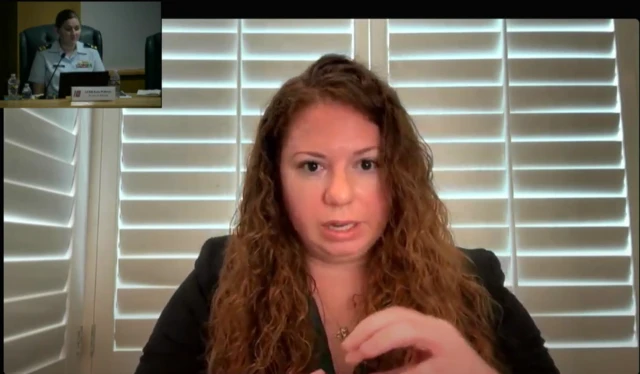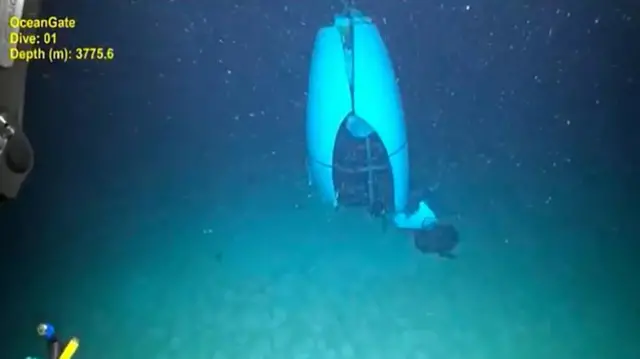More testimony to come on Mondaypublished at 23:23 BST 20 September 2024
 Caitlin Wilson
Caitlin Wilson
Live editor
After a week of testimony at the inquiry into last year's Titan disaster, there is still more testimony to come on Monday.
The Friday session included testimony from an expert in the submersible industry and a researcher who quit OceanGate due to safety concerns.
Antonella Willby, a former OceanGate contractor who worked for the Titan's communication and navigation team described multiple safety breakdowns, including when an unexplained "bang as loud as an explosion" was heard from the sub and company executives failed to investigate the cause.
She was told she did not have "an explorer's mindset" and opted to leave the mission, ending her contract early.
Her testimony came after an appearance by Patrick Lahey, an executive from Triton, a company which manufacturers and sells submersibles.
Lahey said that aside from the Titan, the industry had a "50-year track record of perfect safety" and said he believed that submersibles will become ubiquitous in a generation.
On Monday, the panel will hear from Guillermo Sohnlein, who co-founded OceanGate in 2009 with the company's late CEO Stockton Rush.
It will also hear from Phil Brooks, OceanGate's former director of engineering, and Roy Thomas from the American Bureau of Shipping.
In the meantime, we are concluding our live coverage of this story for now.
You can catch up on all the updates from this week here: Key takeaways from first week of Titan sub hearings
Our writers for this page have been Max Matza, Madeline Halpert and Rebecca Morelle. It has been edited by Marita Moloney and me.
Thank you for joining us.


